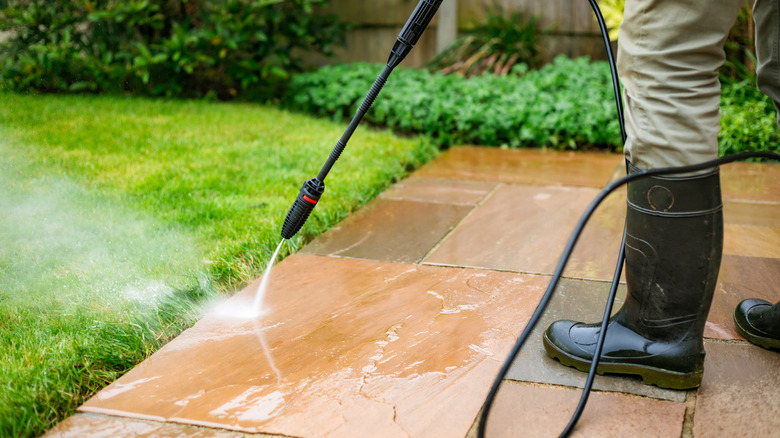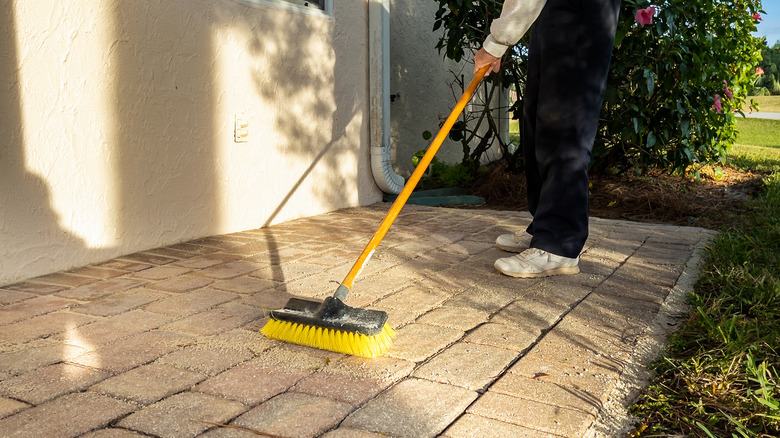The Types Of Paver Materials You Should And Shouldn't Clean With A Pressure Washer
There's a reason there are entire video games devoted to pressure washing. Blasting dirt and grime away is super satisfying and requires way less work than scrubbing by hand. However, there are some things you should never clean with a pressure washer, and that includes certain paver materials.
Patio pavers can be made from natural stone, concrete, brick, or recycled rubber. Choosing the right material for your space is important; aside from cost, appearance, and durability, they also require different cleaning techniques. The manufacturer or store can advise you on how to clean your specific pavers, but in general, natural stone is sturdy enough to withstand pressure washing without cracking or crumbling. That includes granite, basalt, marble, limestone, and other types of stone. Just be careful when pressure washing the joints, as you could dislodge the sand and loosen the stones.
You can pressure wash rubber pavers as well, but you may have to use a lower setting to avoid damage. When it comes to brick and concrete pavers, it's best to skip the pressure washer altogether and use the below cleaning techniques instead.
How to clean brick and concrete pavers
Pressure washers spray water with such force that it can injure you if you get in the way, so it's not too surprising that some materials just can't handle the impact. Brick might start to crack or break into pieces, and if there are any small holes in the surface, pressure washing can blast them further open. It may also remove sealant from the surface. The same is true for concrete pavers.
Instead, the best way to clean brick patio pavers and concrete patio pavers is to use a regular garden hose. Saturate the surface with water, apply a cleaning solution, scrub with a stiff brush or broom, and rinse. This technique also works well for cleaning patio pavers if you don't have a pressure washer or just want to clean as gently as possible. Dish soap and water is a simple cleaning solution that works well for most paver materials.
Some people decide to take the risk and use pressure washers on brick and concrete pavers because of how easy it is. If you decide to go that route, you can minimize the risk of damage by using the lowest setting possible, keeping the pressure washer at a generous distance from the surface, and avoiding joints or holes. You can also buy a medium-pressure washer, which is gentler than a pressure washer yet stronger than a hose.

